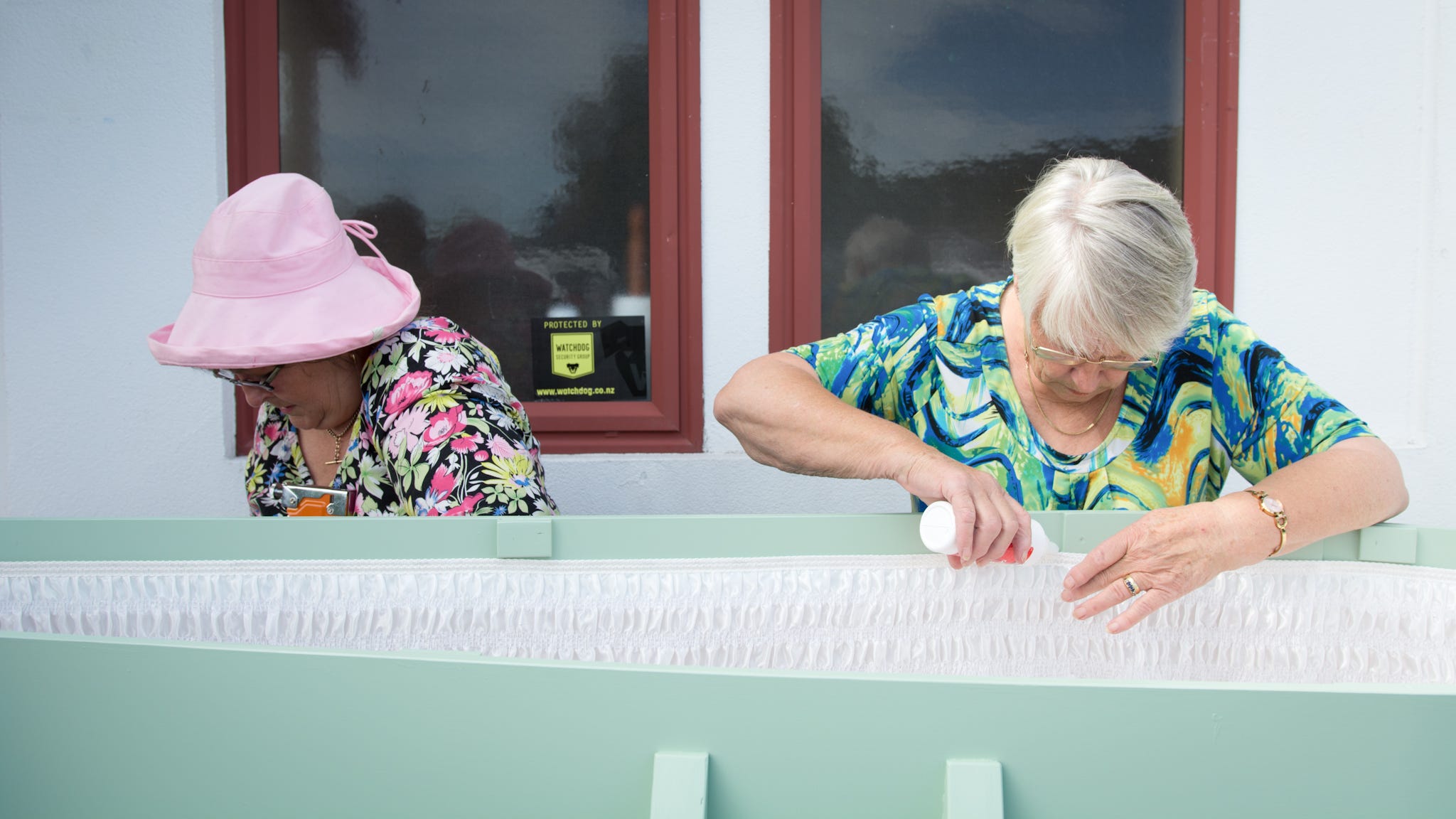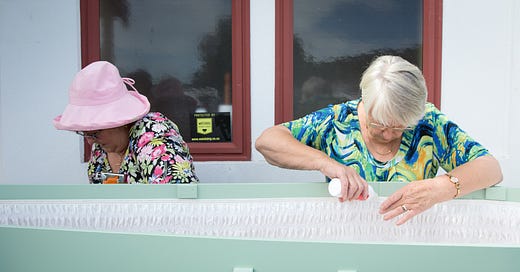These Elderly DIY-ers Came to Peace With Death — By Crafting Their Own Coffins
Here’s what happens when a group of merrily macabre New Zealanders decides to go out in style.

Photos by Gwen McClure
When Davo was a boy growing up in Rotorua, New Zealand, he always wanted to have his own Go Kart. But his childhood dream of zipping around a track in his miniature racing car, and maybe one day becoming a world-famous Formula 1 driver, was never realized. However, if Davo couldn’t have a Go Kart in life, he decided he would have one in death, and he was in the right town to make it happen.
At barely forty years old, with two young daughters, the professional chef was diagnosed with terminal cancer. Davo’s coffin, painted in camouflage, had four wheels with black tires and silver hubcaps, an intricately carved grill, a steering wheel, a vanity license plate with his name in all caps, and the number 43 emblazoned on either side.
Katie Williams, 76, the white-haired, motherly founder of “the Coffin Club,” a non-profit organization that helps members design and construct their own coffins, recounts the story of Davo – of whom Williams requested that only his first nam…
Keep reading with a 7-day free trial
Subscribe to Narratively to keep reading this post and get 7 days of free access to the full post archives.



